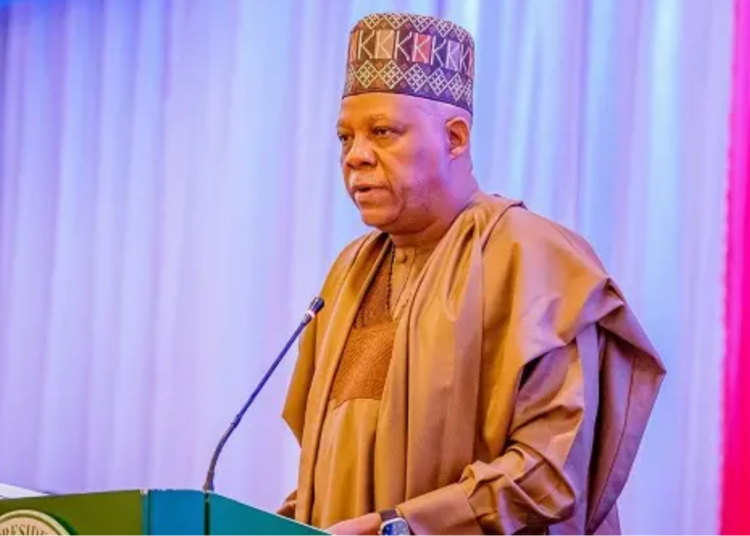Vice President Kashim Shettima has emphasised the need for constructive action over street protest, even as he acknowledged the hardship being faced by Nigerians due to recent economic reforms, particularly the removal of fuel subsidies.
This is even as the federal government announced its participation in the Grand Challenges Nigeria (GCNg) Project, a global health initiative aimed at combating malnutrition and food insecurity in Nigeria.
According to a statement by the VP’s spokesman, Stanley Nkwocha, Shettima unveiled the partnership targeted at addressing Nigeria’s pressing nutritional challenges with the Nutrition Society of Nigeria (NSN) during a high-level meeting at the Presidential Villa in Abuja on Friday.
He stated: “This is the time for us to solve our problems, not to protest. The right to protest is guaranteed in most democracies around the world, but when you can start the agitation, and you don’t know where it will end, it is a road to anarchy.
“We appreciate what Nigerians are going through, and our heart goes out to them. The oil subsidy has been an albatross on our neck for 50 years. Once the harvests start coming, we believe it will have a positive effect on the common man.
“I wish to call on you to advocate for diplomacy, engagement, and patience. The President is very much committed to the Nigerian project but it’s like a percolation project. When a woman is giving birth, it’s a very painful process but once the child is delivered, it is a cause for celebration.”
As part of the government’s response to the nutritional crisis, VP Shettima reiterated the government’s commitment to the Nutrition 774 Initiative, explaining that “catalytic initiatives like the Nutrition 774 Initiative are meticulously designed to incentivize positive changes across our communities.”
The GCNg Project, a collaboration with the Nutrition Society of Nigeria, was set to promote diversity, equity and inclusion in addressing public health and food system challenges.
“The true challenge lies in seamlessly integrating these advancements into our existing low-resource settings,” Shettima stated, urging the Nutrition Society of Nigeria to “push the boundaries of innovation and deepen your collaboration with the government and other stakeholders.”
Accordingly, the leader of the NSN delegation, Prof. Hafiz Abubakar, called on the Vice President as Chairman of the Nutrition Council of Nigeria to spearhead the government’s component of the project and galvanise ministerial support for it.
He said, “We were able to key into the global Grand Challenges project, which is largely funded by the Bill & Melinda Gates Foundation. We want the government to own this project and identify the partner agency or ministry that will sign the MoU.”
Earlier, Senior Programmes Manager for Grand Challenges Nigeria, Godwin Bamsa, provided context on the initiative’s global impact, noting that since 2003, the Gates Foundation has invested over $1.6 billion in health and innovation projects across 118 countries.
He stated: “The Grand Challenges project represents a transformative approach to solving critical health and nutrition issues in Nigeria. Our goal is to empower communities to take ownership of these solutions, ensuring sustainable impact across Nigeria.
“With the government’s partnership, we have the potential to revolutionise not just Nigeria’s health and food systems, but agriculture, science and technology, innovation, and other key sectors.”
Other members of the delegation were NSN President, Professor Wasiu Afolabi, NSN Board of Trustees Member, Professor Ignatius Onimawo, immediate past President of NSN, Dr. Bartholomew Brai; NSN Vice President North, Dr. Aliyu Maimuna Ladidi; Chairperson, NSN FCT Abuja Chapter, Major Edith Ogheneovo Nwachinaemere (Rtd); and NSN Council Member, Dr. Salihu Maiwada Abubakar.





